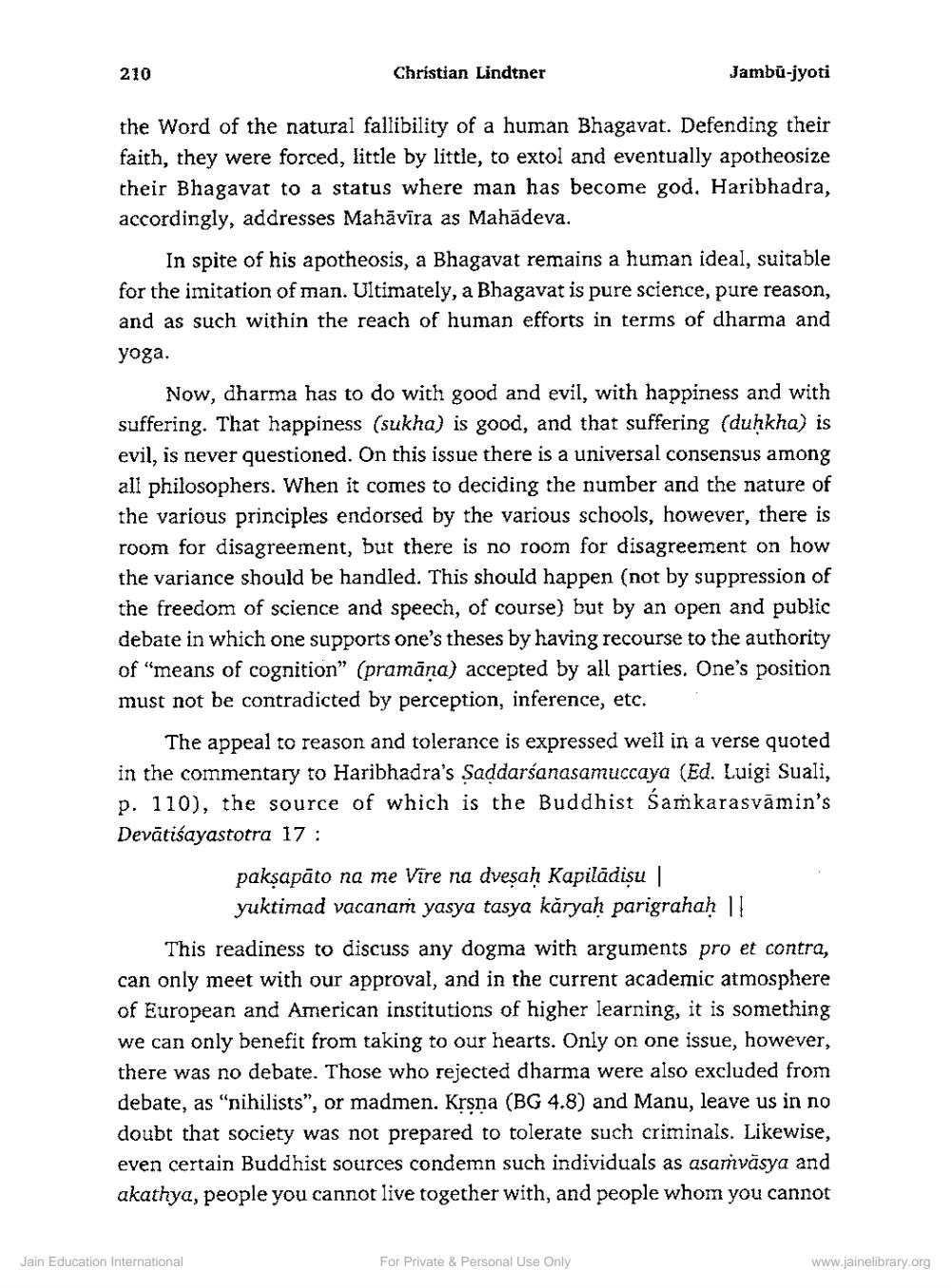Book Title: Humanism of Haribhadra Author(s): Christian Lindtner Publisher: Z_Nirgranth_Aetihasik_Lekh_Samucchay_Part_1_002105.pdf and Nirgranth_Aetihasik_Lekh_Samucchay_Part_2 View full book textPage 8
________________ 210 Christian Lindtner Jambū-jyoti the Word of the natural fallibility of a human Bhagavat. Defending their faith, they were forced, little by little, to extol and eventually apotheosize their Bhagavat to a status where man has become god. Haribhadra, accordingly, addresses Mahāvīra as Mahadeva. In spite of his apotheosis, a Bhagavat remains a human ideal, suitable for the imitation of man. Ultimately, a Bhagavat is pure science, pure reason, and as such within the reach of human efforts in terms of dharma and yoga. Now, dharma has to do with good and evil, with happiness and with suffering. That happiness (sukha) is good, and that suffering (duhkha) is evil, is never questioned. On this issue there is a universal consensus among all philosophers. When it comes to deciding the number and the nature of the various principles endorsed by the various schools, however, there is room for disagreement, but there is no room for disagreement on how the variance should be handled. This should happen (not by suppression of the freedom of science and speech, of course) but by an open and public debate in which one supports one's theses by having recourse to the authority of “means of cognition” (pramāna) accepted by all parties. One's position must not be contradicted by perception, inference, etc. The appeal to reason and tolerance is expressed well in a verse quoted in the commentary to Haribhadra's Saddarśanasamuccaya (Ed. Luigi Suali, p. 110), the source of which is the Buddhist śamkarasvāmin's Devātisayastotra 17 : paksapato na me Vire na dvesah Kapilādisu yuktimad vacanam yasya tasya karyah parigrahah 11 This readiness to discuss any dogma with arguments pro et contra, can only meet with our approval, and in the current academic atmosphere of European and American institutions of higher learning, it is something we can only benefit from taking to our hearts. Only on one issue, however, there was no debate. Those who rejected dharma were also excluded from debate, as “nihilists", or madmen. Krsna (BG 4.8) and Manu, leave us in no doubt that society was not prepared to tolerate such criminals. Likewise, even certain Buddhist sources condemn such individuals as asamvāsya and akathya, people you cannot live together with, and people whom you cannot Jain Education International For Private & Personal Use Only www.jainelibrary.orgPage Navigation
1 ... 6 7 8 9 10 11 12 13 14 15 16 17 18 19 20 21 22 23 24 25 26 27 28 29 30 31 32 33 34 35 36 37 38 39 40 41 42 43 44 45 46 47 48 49 50 51 52 53 54 55 56 57 58 59 60 61 62 63 64 65 66
